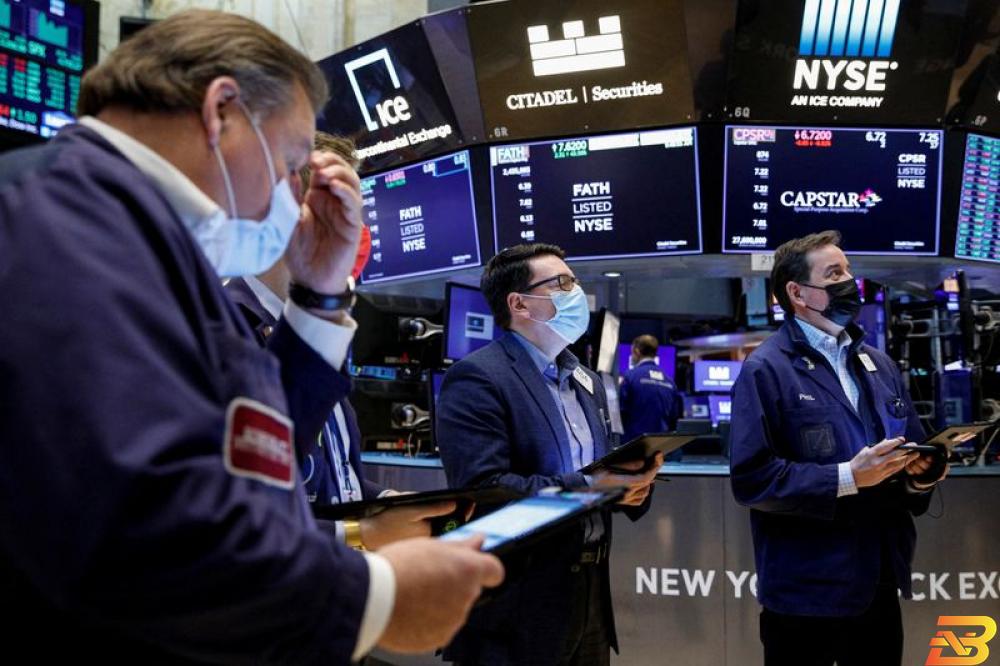
London (Reuters) - The Dow rose on Thursday after a slower rise in producer prices in December fueled hopes that inflation has potentially reached its peak, while declines in healthcare stocks and megacap companies pressured the S&P 500 and the Nasdaq.
The producer price index increased 0.2% last month, after advancing 0.8% in November, the Labor Department said on Thursday amid falling cost of goods and signs that stretched supply chains were starting to ease.
In the 12 months through December, the PPI surged 9.7%, below the 9.8% forecast of economists polled by Reuters.
"Investors are looking for signs of moderation in supply chain disruptions, as declining input costs would ultimately signal an easing of the consumer's price burdens," said John Lynch, chief investment officer for Comerica Wealth Management.
The PPI figures come a day after Wall Street indexes cheered consumer prices data that largely met market expectations despite hitting a 40-year high.
Nine of 11 major S&P 500 sectors eked out gains, with economy-focused cyclicals including financials, industrials and energy leading gains.
Healthcare stocks tumbled 1%, weighing the most on the benchmark index. The Nasdaq was hit by declines in Tesla Inc, Microsoft Corp, Meta Platforms and Apple Inc.
Companies will report results on the final quarter of 2021 in the coming weeks. Year-over-year earnings growth from S&P 500 companies were expected to be lower in the fourth quarter compared to the first three quarters but still strong at 22.4%, according to IBES data from Refinitiv.
Banks JPMorgan Chase, Citigroup and Wells Fargo are due to report on Friday, while big technology and other mega-cap companies start next week.
"Last time, financials booked a lot of reserves, thinking at the time that people were not going to pay them back but things have improved a lot now," said Fall Ainina, deputy director of research for James Investment.
Retail investors have also raised their exposure to bank stocks ahead of the earnings announcements, according to Vanda Research's weekly report on retail flows.
At 10:33 a.m. ET, the Dow Jones Industrial Average was up 103.59 points, or 0.29%, at 36,393.91, the S&P 500 was down 6.55 points, or 0.14%, at 4,719.80, and the Nasdaq Composite was down 75.74 points, or 0.50%, at 15,112.65.
Delta Air Lines gained 4.2% after beating estimates for fourth-quarter earnings, lifting the S&P 1500 Airlines index by 3.7%.
Federal Reserve Governor Lael Brainard, whose testimony is underway for her nomination as deputy chair of the U.S. central bank, in her prepared remarks said controlling inflation is the "most important task" for the Fed.
Wells Fargo followed Goldman Sachs, JPMorgan and Deutsche Bank in forecasting the Fed to raise interest rates four times this year.
Advancing issues outnumbered decliners by a 1.34-to-1 ratio on the NYSE. Declining issues outnumbered advancers for a 1.30-to-1 ratio on the Nasdaq. The S&P index recorded 34 new 52-week highs and no new low, while the Nasdaq recorded 45 new highs and 170 new lows.







